The Federal Government is currently proposing some significant changes to the Pardon legislation that could make it harder to get pardons and that is trying to eliminate the word “pardon” and replace it with “record suspension.”
Pardons Canada is currently working closely with government officials at the committee level to oppose certain proposed changes in Bill C-23 that will make it more difficult for Canadians to recieve a Canada Pardon. We will be making a formal submission to the committee in the next week which we will share in a future blog.
In the meantime, there is considerable press about the proposed changes stemming from Bill C-23B. Below is a recent article from the Edmonton Sun titled “Feds Still Eyeing Tougher Pardons Rules”:
http://www.edmontonsun.com/news/canada/2010/11/16/16174836.html
OTTAWA — Canada’s pardon system needs to be tighter, according to the Public Safety Minister who will testify at a Parliamentary committee hearing Wednesday.
Parts of Bill-C23 were approved by all parties at the 11th hour last spring shortly before infamous killer Karla Homolka would have been eligible to apply to have her criminal record sealed.
The new rules, which became law last spring, give the National Parole Board more discretion to deny pardons, especially if it “brings the administration of justice into disrepute,” and people convicted of serious violent offences, like manslaughter and child sexual offences, will have to wait 10 years after serving their full sentence, not five years, before being eligible to apply.
But although parliamentarians worked quickly to block Homolka’s eligibility, Public Safety Minister Vic Toews wants still tighter rules.
He’s asking opposition MPs to approve a clause left out of last spring’s negotiations that would make sex offenders who prey on children ineligible forever.
“On the issue of sex crimes against children, I’m inflexible,” Toews said Tuesday ahead of the committee hearing. “We need to have that kind of protection by letting the public know that these people have done this in the past. For me, that is very, very firm.”
Another clause of the bill that Toews is more flexible on is the four-strikes-you’re-out policy, which would preclude anyone with four or more indictable offence convictions from ever applying for a pardon.
The opposition have said that could ruin the lives of people who make a series of mistakes in their youth, but have been rehabilitated.
“If I were assured that multiple offenders could not take advantage of the pardon system, I would consider another proposal,” he said. “But we have to draw the line somewhere, and the generosity and tolerance of Canadians is a good thing, but their concerns about crime have to be respected.”
The country’s lax pardon system, which previously did not allow the National Parole Board any discretion to deny pardons and was criticized as a “rubber stamp” process by the government, became an issue last spring when news that convicted sex offender Graham James, who preyed on children whom he coached at hockey, was quietly pardoned in 2007.
It then also surfaced that Homolka would have been eligible to apply for a pardon in July 2010, having lived crime free for five years following the end of her 12 year jail sentence for two counts of manslaughter.
Parliament’s Public Safety and National Security Committee meets Wednesday afternoon.
If you have any questions regarding this topic or about Pardons and US Entry Waivers email us at [email protected] or call 1-877-929-6011.



